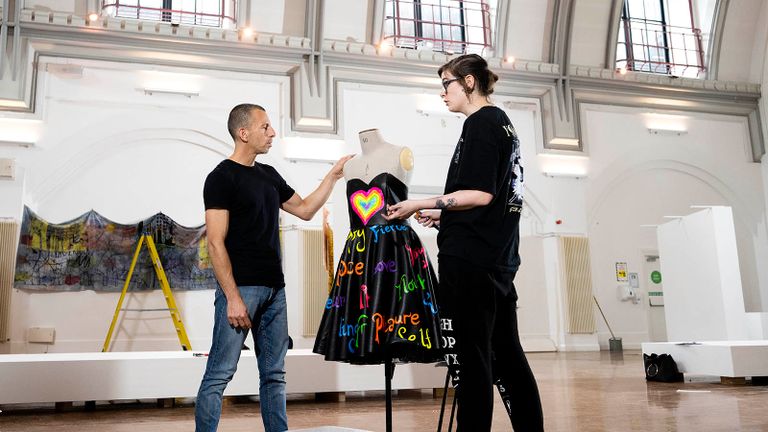Liverpool Hope University
National rank
80
th=
74.3
%
Firsts / 2:1s
82.9
%
Completion rate
Key stats
20
th=
Teaching quality
42
nd=
Student experience
106
th
Research quality
119
th=
Graduate prospects

Contact details
Address
Hope Park, Taggart Avenue, Liverpool , L16 9JD,
View on mapTelephone
Website
Open days
Performance
| Category | Score | Rank |
|---|---|---|
| Ranking | - | 80= (81) |
| Teaching quality | 78.5 | 20th= |
| Student experience | 73.4 | 42nd= |
| Research quality | 22.3 | 106th |
| Ucas entry points | 114 | 103rd= |
| Graduate prospects | 64.8 | 119th= |
| Firsts and 2:1s | 74.3 | 90th |
| Completion rate | 82.9 | 86th= |
| Student-staff ratio | 16.3 | 69th |
Vital statistics
| Undergraduates |
Full-time 4,303 |
Part-time 57 |
| Postgraduates |
Full-time 873 |
Part-time 452 |
| Applications/places | 11,030/1,695 | |
| Applications/places ratio | 6.5:1 | |
| Overall offer rate | 88.5% |
Accommodation
| Places in accommodation | 1,145 | |
| Accommodation costs | £95 - £126 | |
| Accommodation contact | https://www.hope.ac.uk/halls/ |
Finance
| UK/EU fees | £9,250 | |
| Fees (placement year) | £900 | |
| Fees (overseas year) | £1,385 (15% of tuition) | |
| Fees (international) | £12,500 | |
| Finance website | https://www.hope.ac.uk/undergraduate/feesandfunding/ | |
| Graduate salaries | £22,000 |
Sport
| Sport points/rank | 59.5, 112th | |
| Sport website | www.hope.ac.uk/hopeparksports/ |
Social inclusion and student mix
| Social Inclusion Ranking | 69 | |
| State schools (non-grammar) admissions | 91.2% | |
| Grammar school admissions | 7% | |
| Independent school admissions | 1.8% | |
| Ethnic minority students (all) | 11.9% | |
| Black achievement gap | -29.5% | |
| White working class males | 10.2% | |
| First generation students | 49.5% | |
| Low participation areas | 21.6% | |
| Working class dropout gap | -9% | |
| Mature | 21.4% | |
| EU students | 3% | |
| Other overseas students | 1.1% |
Student satisfaction with teaching quality
| Drama, dance and cinematics | 88.9% | |
| History | 88.8% | |
| English | 88.7% | |
| Communication and media studies | 84.4% | |
| Computer science | 84% | |
| Social policy | 83.2% | |
| Creative writing | 83% | |
| Geography and environmental science | 83% | |
| Education | 81.8% | |
| Sports science | 80.2% | |
| Politics | 79.9% | |
| Business, management and marketing | 79.8% | |
| Biological sciences | 79% | |
| Social work | 78% | |
| Art and design | 76.5% | |
| Criminology | 76% | |
| Sociology | 76% | |
| Theology and religious studies | 75.9% | |
| Music | 70.6% | |
| Psychology | 64.6% | |
| Food science | 58.6% | |
| Law | 58.2% |